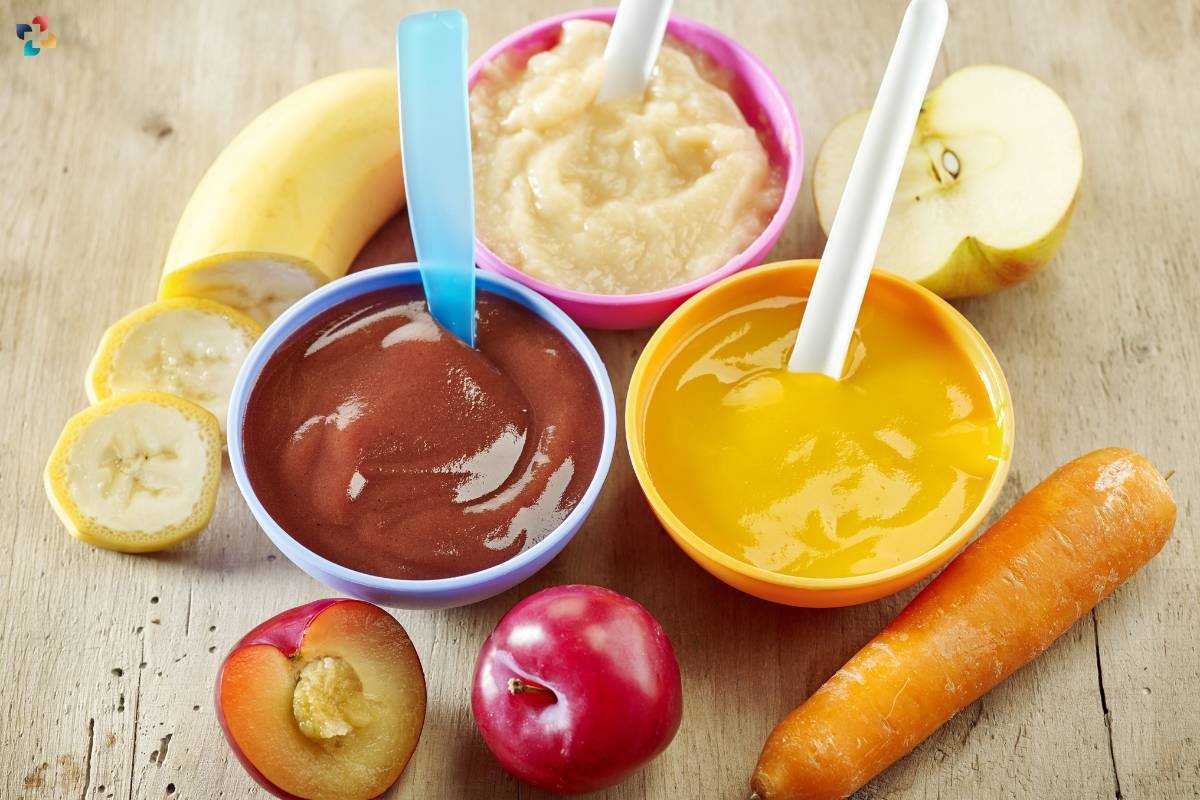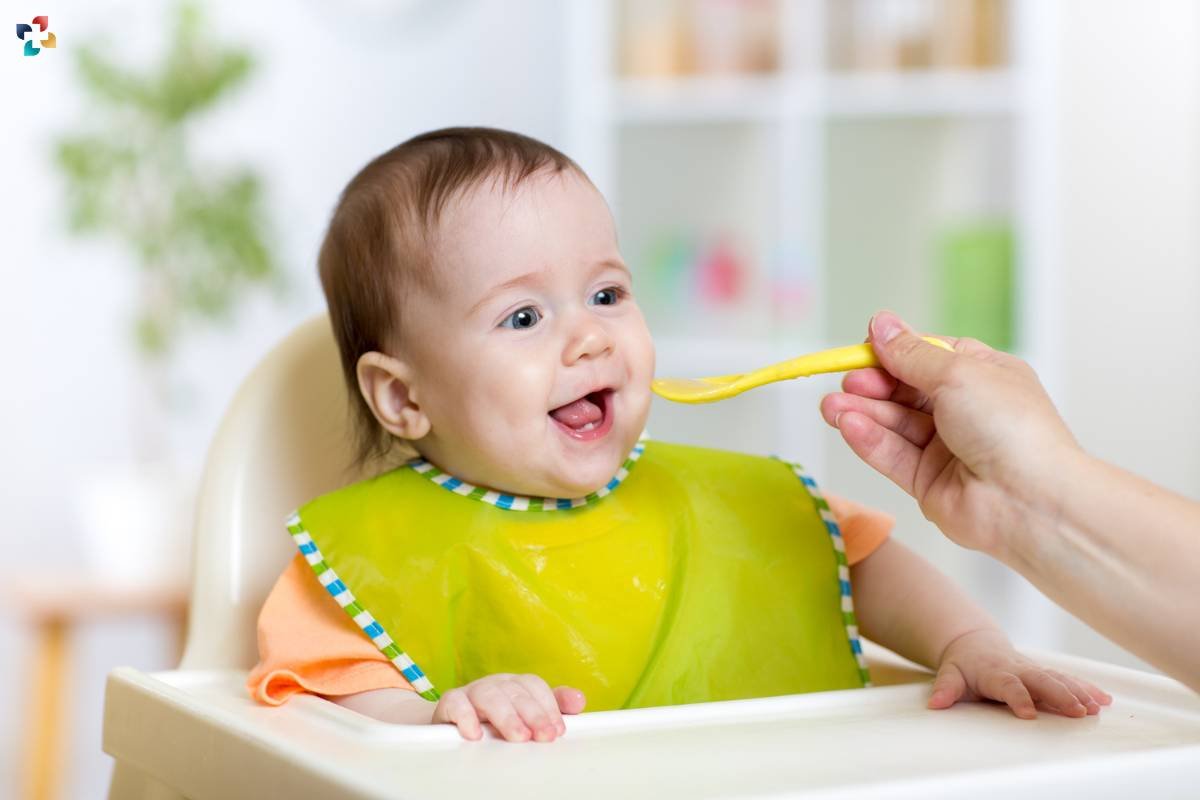The decisions you make about what to feed your child can have a significant effect on their development and health. Choosing between homemade and commercial baby food is one of the biggest choices parents have to make. An important topic of discussion is whether homemade baby food is healthier for infants than commercially prepared varieties. We will examine the benefits and drawbacks of homemade and store-bought baby food in this post to assist parents in making decisions that will benefit their little ones.
Understanding the Importance of Baby Food
Baby food is a crucial element in a child’s early years, as it provides essential nutrients for growth and development. Proper nutrition during infancy is vital for the following reasons:
1. Growth and Development
Babies undergo rapid physical and cognitive development in their first year of life. Adequate nutrition supports this growth and ensures that they reach their developmental milestones.
2. Establishing Healthy Eating Habits
The foods introduced to a baby during the weaning process can shape their eating habits and preferences later in life. A varied and nutritious diet sets the stage for a lifetime of healthy eating.
3. Immune System Support
Proper nutrition can bolster a baby’s immune system, helping them fight off illnesses and infections.
4. Nutrient Requirements
Infants have specific nutrient requirements, including essential vitamins, minerals, and macronutrients like protein and fat, to support their growth and development.
Homemade Baby Food: Advantages and Disadvantages
Advantages:
- Control Over Ingredients: Making baby food at home gives you complete control over the ingredients. You can choose high-quality, fresh, and organic ingredients, ensuring that your baby receives the best nutrition.
- Variety of Flavors and Textures: Homemade baby food allows for a wide range of flavors and textures, which can introduce your baby to a more diverse palate.
- No Additives or Preservatives: Homemade baby food typically contains no artificial additives or preservatives, as you are in charge of the ingredients and preparation.
- Cost-Effective: Making baby food at home can be cost-effective, especially when using ingredients from your kitchen.
- Customization: You can tailor homemade baby food to your baby’s specific needs and preferences. For example, if your baby has allergies or sensitivities, you can adjust the ingredients accordingly.

Disadvantages:
- Time-Consuming: Preparing homemade baby food can be time-consuming, particularly for busy parents. It involves shopping, cooking, and pureeing or mashing the food.
- Lack of Convenience: Homemade baby food may not be as convenient as commercial options, which come in ready-to-use containers and pouches.
- Storage and Shelf Life: Homemade baby food has a shorter shelf life than commercial varieties. Storing and managing the freshness of homemade food can be a challenge.
- Nutritional Knowledge: Preparing homemade baby food requires some nutritional knowledge to ensure that your baby receives all the necessary nutrients.
- Transition to Solids: Transitioning from breast milk or formula to solids can be challenging for both parents and babies. Homemade baby food requires careful preparation to ensure that it’s suitable for your baby’s stage of development.
Commercial Baby Food: Advantages and Disadvantages
Advantages:
- Convenience: Commercial baby food is extremely convenient, as it comes in pre-packaged containers that are ready to serve. This convenience is especially beneficial for parents on the go.
- Consistency: Commercial baby food is consistent in texture and flavor, making it easy to track your baby’s preferences and dietary intake.
- Nutritional Assurance: Baby food manufacturers adhere to strict regulations and guidelines, ensuring that their products provide essential nutrients needed for a baby’s development.
- Variety of Options: The market offers a wide variety of commercial baby food options, including single-ingredient purees, mixed flavors, and textured foods.
- Longer Shelf Life: Commercial baby food has a longer shelf life, reducing the need for constant preparation and ensuring that you always have baby food on hand.

Disadvantages:
- Limited Ingredient Control: With commercial baby food, you have limited control over the ingredients. Some options may contain additives, preservatives, or added sugars that you may want to avoid.
- Potentially Higher Costs: Over time, purchasing commercial baby food can be more expensive than making your own, especially if you opt for premium or organic options.
- Limited Flavor Variety: Commercial baby food may not offer as much flavor variety as homemade options. This can impact your baby’s palate development.
- Environmental Impact: The packaging of commercial baby food can contribute to environmental waste, as many containers are single-use plastics.
- Potential for Allergens: Commercial baby food may not be suitable for babies with specific food allergies or sensitivities.
Making an Informed Choice for Your Baby
Choosing between homemade and commercial baby food ultimately depends on your preferences, lifestyle, and your baby’s individual needs. Here are some factors to consider when making this decision:
1. Time and Convenience
Consider your daily schedule and whether you have the time to prepare homemade baby food. If convenience is a top priority, commercial baby food may be a better option.
2. Nutritional Control
If you want complete control over the ingredients your baby consumes and prefer to avoid additives, making baby food at home is the way to go.
3. Cost
Evaluate your budget and the long-term costs of either option. While homemade baby food can be more cost-effective, commercial baby food offers convenience.
4. Allergies and Sensitivities
If your baby has known food allergies or sensitivities, homemade baby food may be a safer choice to tailor the diet to their needs.
5. Variety and Taste
Consider your baby’s palate and whether you want to introduce a wide variety of flavors and textures early on. Homemade baby food can provide more diversity in this regard.
6. Environmental Concerns
If you are environmentally conscious, you may want to consider the packaging and waste associated with commercial baby food.
Tips for Homemade Baby Food Preparation
If you decide to prepare homemade baby food for your little one, here are some tips to ensure it is safe and nutritious:

1. Choose Fresh Ingredients
Use fresh and high-quality ingredients. Opt for organic produce when possible to reduce exposure to pesticides.
2. Sanitize Utensils
Ensure that all utensils and containers used for preparing baby food are thoroughly cleaned and sanitized.
3. Proper Cooking
Cook fruits and vegetables until they are tender and easy to mash or puree. This helps eliminate potential choking hazards.
4. Age-Appropriate Foods
Introduce age-appropriate foods to match your baby’s developmental stage. Start with single-ingredient purees and gradually progress to mixed flavors and textures.
5. Avoid Allergenic Foods
Be cautious when introducing allergenic foods, such as peanuts, tree nuts, and shellfish. Consult with a pediatrician if you have concerns about allergies.
6. Safe Storage
Properly store homemade baby food in airtight containers in the refrigerator or freezer. Label containers with the date to track freshness.
7. Maintain Hygiene
Ensure that your hands are clean, and maintain proper hygiene throughout the food preparation process.
8. Consult a Pediatrician
Consult your pediatrician for guidance on introducing solids and specific food recommendations based on your baby’s needs.
Conclusion
The decision to buy commercial or make your own baby food is a personal one, with benefits and drawbacks for each. Your baby’s health and nourishment are ultimately the most important things. Making sure your baby gets the vital nutrients they require for healthy growth and development is crucial, regardless of whether you prepare baby food at home or buy premade options. You can give your child the best start in life by speaking with your pediatrician and making well-informed decisions.
Also Read: When Can My Baby Start Eating Solid Foods? Tips from an Expert







